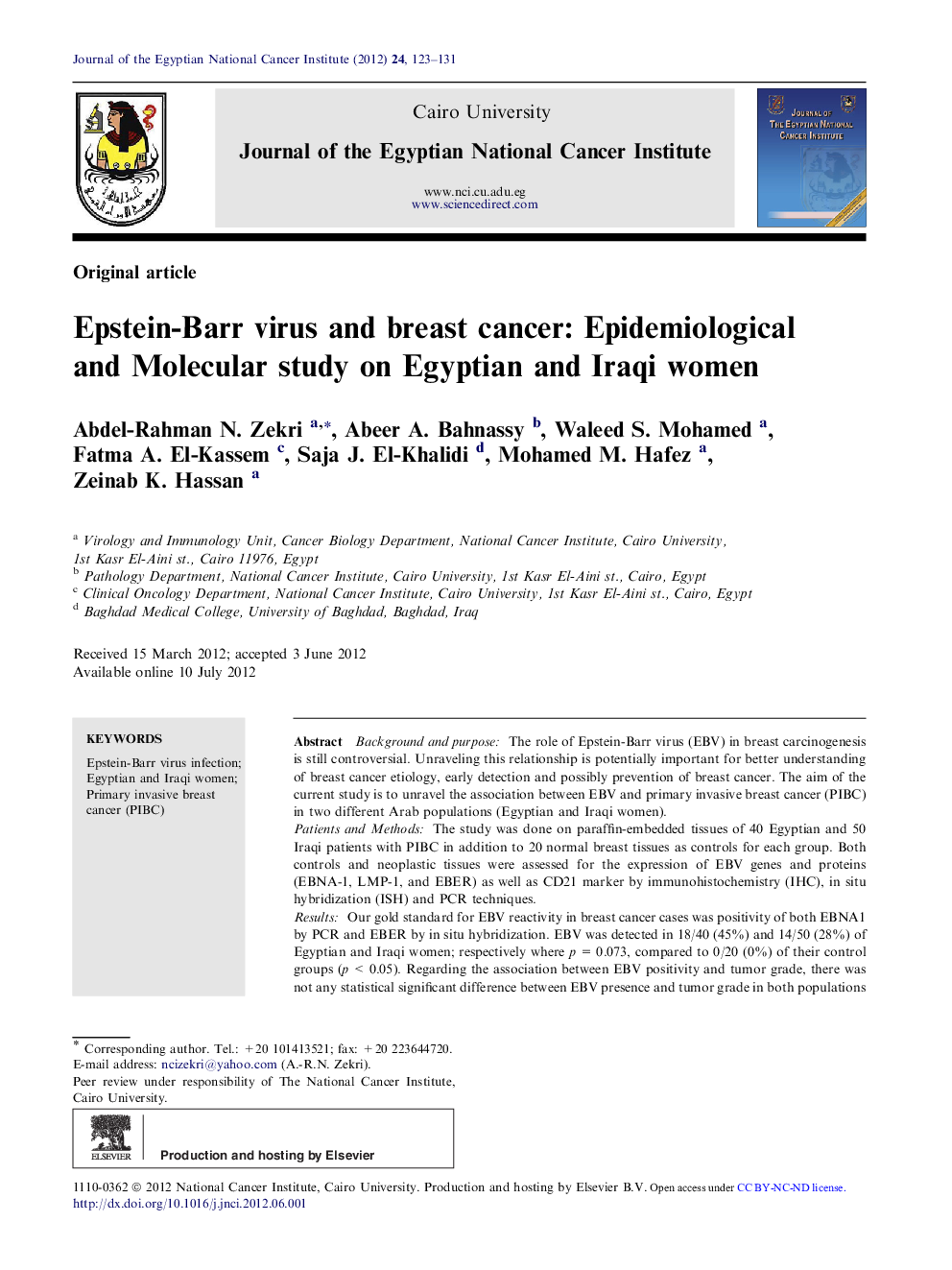| Article ID | Journal | Published Year | Pages | File Type |
|---|---|---|---|---|
| 3988939 | Journal of the Egyptian National Cancer Institute | 2012 | 9 Pages |
Background and purposeThe role of Epstein-Barr virus (EBV) in breast carcinogenesis is still controversial. Unraveling this relationship is potentially important for better understanding of breast cancer etiology, early detection and possibly prevention of breast cancer. The aim of the current study is to unravel the association between EBV and primary invasive breast cancer (PIBC) in two different Arab populations (Egyptian and Iraqi women).Patients and MethodsThe study was done on paraffin-embedded tissues of 40 Egyptian and 50 Iraqi patients with PIBC in addition to 20 normal breast tissues as controls for each group. Both controls and neoplastic tissues were assessed for the expression of EBV genes and proteins (EBNA-1, LMP-1, and EBER) as well as CD21 marker by immunohistochemistry (IHC), in situ hybridization (ISH) and PCR techniques.ResultsOur gold standard for EBV reactivity in breast cancer cases was positivity of both EBNA1 by PCR and EBER by in situ hybridization. EBV was detected in 18/40 (45%) and 14/50 (28%) of Egyptian and Iraqi women; respectively where p = 0.073, compared to 0/20 (0%) of their control groups (p < 0.05). Regarding the association between EBV positivity and tumor grade, there was not any statistical significant difference between EBV presence and tumor grade in both populations where p = 0.860 and p = 0.976 and the calculated rank biserial correlation coefficient was 0.114 and 0.269 for Egyptian and Iraqi women respectively.ConclusionOur findings show that EBV might act as a promoter for the development of PIBC and it might contribute to increased tumor aggressiveness in Egyptian and Iraqi patients.
